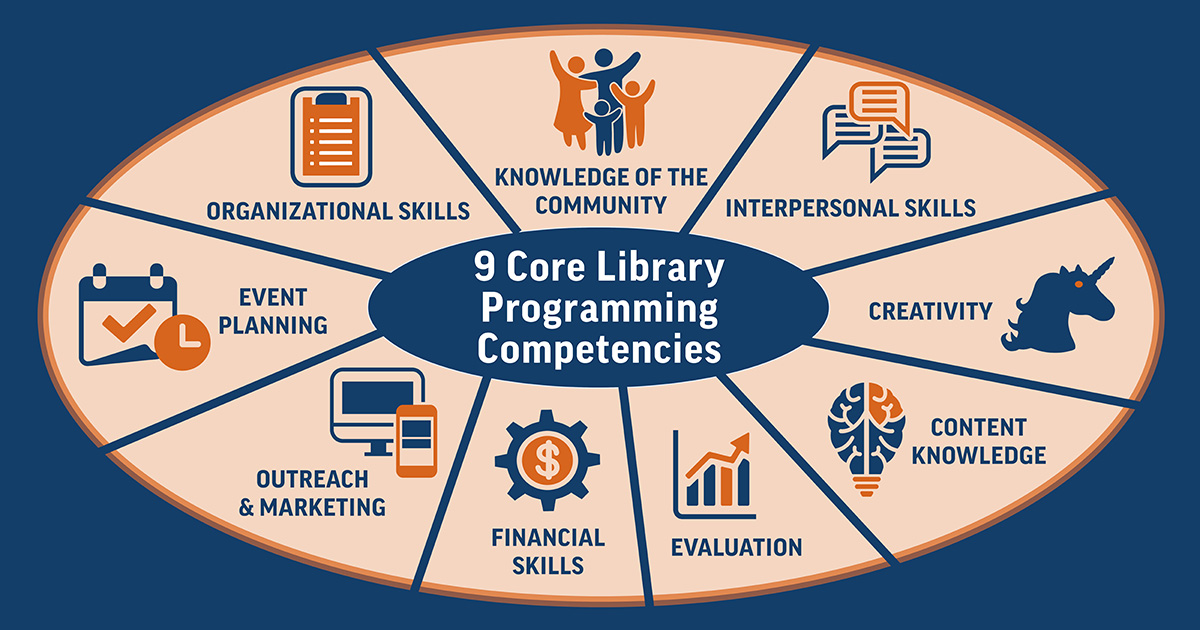Library Programs Require a Unique Set of Skills
Researchers and library professionals develop first-ever framework for library programming competencies.
Key Findings
Recent research from Knology and the American Library Association published in the Journal of Education for Library and Information Science describes some of the specific disciplinary competencies that librarians need to develop and run public programs. The research also covers the settings where and pathways through which library professionals currently learn and cultivate these skills.
For this research, we gathered input from library professionals across the United States including people working in academic settings, programming practitioners, library administrators, and an advisory group of individuals from across the library programming field. As part of the study, the research team assessed existing library competency frameworks, data from job ads and ALA-accredited graduate programs. We also gathered feedback from a public blog that was launched to share information as the project developed. Lastly, we surveyed library programming professionals for their perspectives on the skills needed to run public programs, how they felt about running these programs, and how they learn those skills among other bits of information.
The analysis indicated that running effective library public programming requires nine core competencies; organizational skills, knowledge of the community, interpersonal skills, event planning, creativity, content knowledge, outreach & marketing, financial skills, and evaluation. While many of these skills are valuable in other library specialties, the results show that this particular combination is unique to library programming work.

The research showed that most librarians currently learn these competencies outside of traditional MLIS programs. Nearly all respondents said that they learned programming skills on the job. Many respondents reported getting informal training and learning from their colleagues.
Let’s Put It to Work
For libraries: Staff at several libraries plan to use this competency framework to guide their professional development activities, evaluate job candidates, as well as to advocate for more professional development resources. We hope that other libraries will do the same at their locations. More and more people rely on their local libraries and the programs and services that they provide so it is crucial for library professionals to have the necessary skills to support their communities.
For LIS educators: Given the rise of programming in library jobs, graduate programs can use this framework to see how well their current curricula and courses align with programming needs and make adjustments where necessary. Furthermore, educators can use this information to update existing courses and/or develop new ones that target the competencies mentioned in this paper.
About this Study
This research is part of the National Impact of Library Public Programs Assessment (NILPPA), an initiative of the American Library Association to understand and document the characteristics, audiences, outcomes, and value of US library public programming. Read more about the NILPPA research here.
Photo courtesy of American Library Association